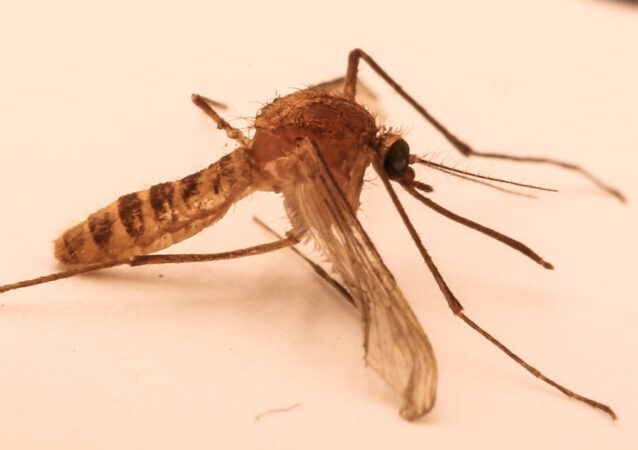Oropouche fever, a mosquito-borne disease, has reached Europe for the first time, raising concerns about the virus’s spread and its public health implications. While the mosquitoes responsible for transmitting dengue and Zika have been detected in several Portuguese regions, as well as in other parts of Europe where they had not previously been found, the detection of Oropouche cases on the continent has raised alarm bells for health authorities.
The development comes after reports of virus-related deaths in Brazil, raising fears that the disease could spread “out of control” across Europe, experts warn.
Oropouche fever, which has caused more than 8,000 cases in Latin America, has raised growing global concern. In Brazil, where the first virus-related deaths were recorded, two young women have died from the disease. The victims, aged 21 and 24, suffered from severe abdominal pain, bleeding and low blood pressure before they died on July 25.
Symptoms of Oropouche fever are similar to those of dengue fever, including headache, high fever, muscle pain, joint stiffness, nausea, vomiting, chills, and photophobia.
According to the European Centre for Disease Prevention and Control (ECDC), an alert was issued last Friday, highlighting the urgent need for precautions for citizens residing in or travelling to risk areas. The ECDC report highlights that although the first cases have been identified in Europe, the insect vector for Oropouche fever, Culicoides paraenses (also known as the sandfly), is not present on the European continent. Authorities recommend the use of insect repellents and long-sleeved clothing and trousers to reduce the risk of infection.
Figures in Latin America show a rise in cases, with Brazil leading the number of infections, followed by Bolivia, Colombia, Peru and Cuba. Between June and July 2024, Europe recorded 19 imported cases of Oropouche virus: 12 in Spain, five in Italy and two in Germany. These cases are linked to recent travel to Cuba and Brazil, according to the European Centre for Disease Prevention and Control. In Italy, two tourists who returned from Cuba showed symptoms: a 26-year-old woman after a trip to Ciego de Ávila province, and a 45-year-old man after a trip to Havana and Santiago de Cuba.
“Arboviruses, such as Oropouche fever, dengue, Zika and Chikungunya, represent a public health emergency,” virologist Dr Concetta Castelletti, head of the Virus and Emerging Pathogens Unit at a hospital near Verona, told The Telegraph of the growing threat. “We will have to get used to living with them.” The expert warned that climate change and increased human population movement could make viruses previously confined to the tropics also endemic in higher latitudes.
Oropouche fever can cause fever, headache, nausea, vomiting, muscle and joint pain, and is particularly dangerous for pregnant women, where it can lead to miscarriage, developmental problems and birth defects. Brazil's health ministry has warned of the growing risk after four babies were born with microcephaly to mothers infected with the virus.
The European Centre for Disease Control and Prevention considers the risk of infection for European citizens traveling to endemic areas in the Americas to be “moderate”. However, human exposure in Europe remains very low, as there are no mosquitoes or other small insects that transmit the virus on the continent and there have been no documented cases of human-to-human transmission of the virus to date.
Furthermore, Europe has seen an increase in mosquito-borne diseases, such as West Nile virus, with recent cases detected in Greece and Romania, highlighting the need for effective surveillance and preventive measures.

“Wannabe internet buff. Future teen idol. Hardcore zombie guru. Gamer. Avid creator. Entrepreneur. Bacon ninja.”

